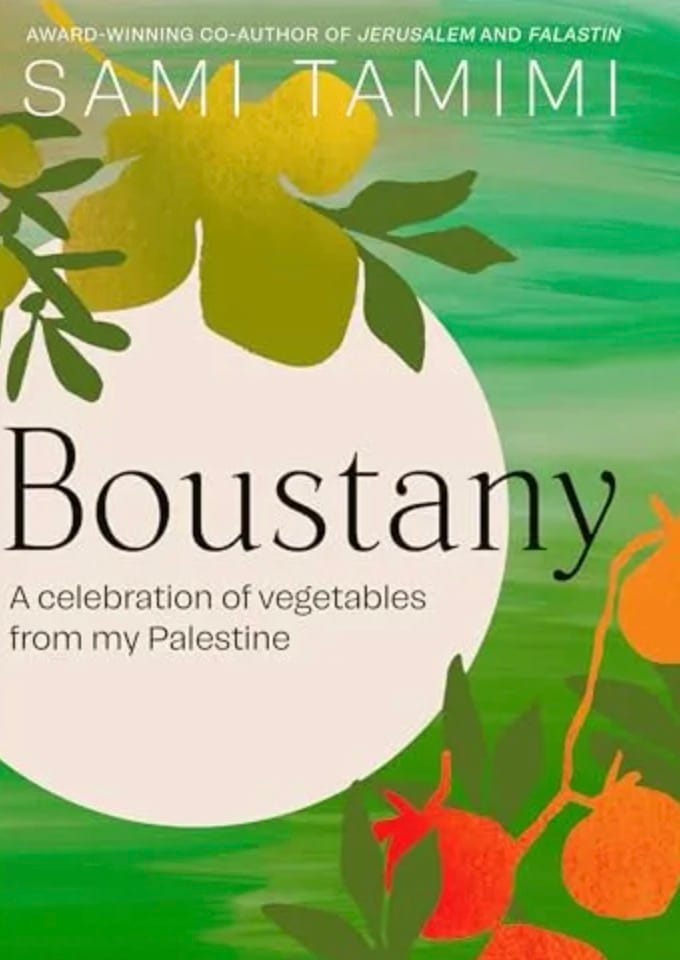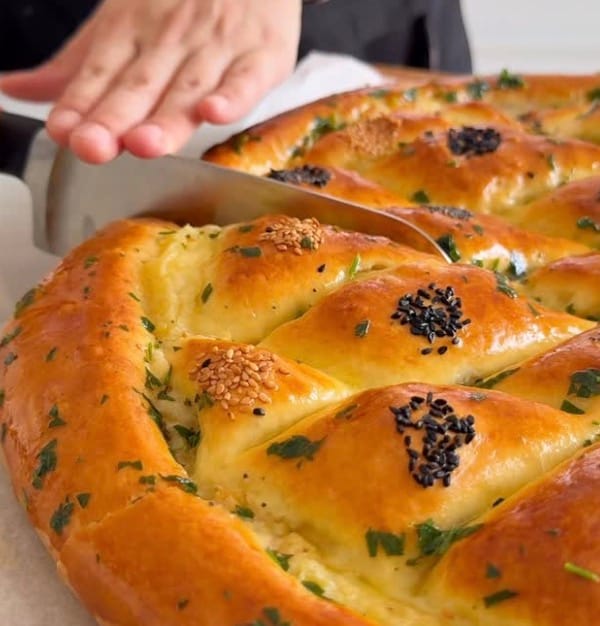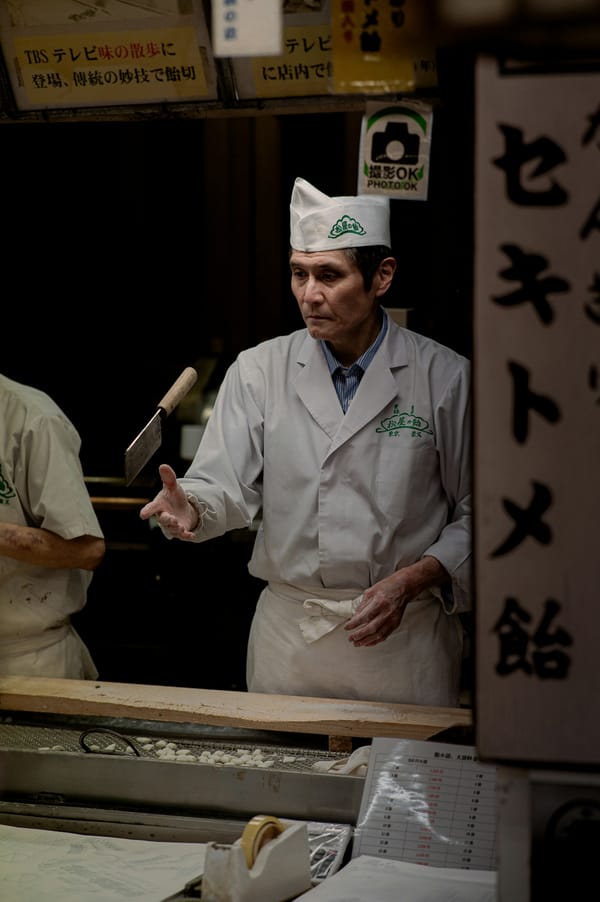The Perfect Chips Brine and Other Brainrot Food 🍟

Welcome to Secret Breakfast / The best place to get into exploited monkeys and gentrified kitchens, while baking Turkish potato cakes and Palestinian vegetables, never mistaking bad taste for liberation
Hi there!
I'm really pleased with the recipes in this issue.
And the monkey story is compelling, though the exploitation of animals for food gathering hardly comes as news.
Enjoy your week!
Piero


✹Tony Tulathimutte, Private Citizens. How did I come to this book? My friend GP thinks that another book by this author, called Rejection and published in 2024, is unmissable (🇮🇹it will be published in Italian in September).


A Palestinian Chef's Return to His Roots
Sami Tamimi's Boustany takes its name from the Arabic word for "my garden" (does it?), evoking childhood memories of his maternal grandparents' dream house near Hebron, where lush orchards filled with fruit trees and vegetables became the backdrop for family gatherings and traditional Palestinian feasts. This deeply personal cookbook arrives at a fractured moment for the Jerusalem-born chef, who has severed ties with his longtime Israeli business partner Yotam Ottolenghi. More than recipes, Boustany becomes an act of cultural preservation and gentle resistance, documenting Palestinian culinary traditions from Gaza-style falafel rich with spices to innovative takes on classics like tahini and labneh. "I don't want people to think only of war when Palestine is mentioned," Tamimi explains, positioning food as a way to celebrate Palestinian identity beyond conflict.
Boustany: A Celebration of Vegetables from my Palestine by Sami Tamimi
→Shortplot 🇵🇸 🍆 🫛 🍉

The 50% Leftover Rule

I was mindlessly scrolling when I saw someone take puff pastry scraps, add 50% sugar by weight, and create easy Palmiers (★recipe).
That got me thinking: what other bases can I transform with just one ingredient at X% of their weight?
Here are 5 leftover transformations that should work with that formula:
🥔 Leftover Mashed Potatoes + 30% Flour = Gnocchi
Cold mashed potatoes become pillowy pasta with just flour and a quick roll.
🍨 Melted Ice Cream + 50% Self-Rising Flour = Instant Cookies
Two ingredients. Ten minutes. Done.
🍝 Leftover Pasta + 20% Beaten Eggs = Frittata di Pasta
Neapolitan street food magic. Crispy outside, creamy inside.
🍞 Stale Bread + 40% Milk = Bread Pudding Base
Soak, sweeten, bake. Waste becomes dessert.
🍚 Leftover Rice + 25% Cornstarch = Crispy Rice Cakes
Pan-fry until golden. Perfect vehicle for any topping.
Do you have any other formula?



🍟To Make The Perfect Chips, You Need This Brine 🧄José Andres No Egg Allioli (★recipe)🫘Full of beans: six hearty, fibremaxxed vegetable recipes (★recipes) 🌱One of the Most Popular NYTimes Recipes: One-Pan Orzo With Spinach and Feta 🍅Tomato Tart With Mustard and Herbs (★recipe) 🇮🇷Mini Persian love cakes (★recipe) 🧡This Creamy Butter Halloumi Curry Works also as a Frozen Dinner (★recipe) 🧠How Do You Like Brainrot Food? 🌽Chipá Guazú is a Cheese and Corn Casserole (★recipe) 🐝The Honey Deuce Cocktail Turns 18 ☕️Spiced coffee granita with whipped cream (★recipe) 📔Like Every Year, I'm picking my 2026 Japanese Journal on Sep 1st (I'll go with the Weeks Mega this time) 🥒Joke: The Essential For a Perfect Dinner Party by Richard Scarry

Restaurant kitchens have been gentrified
Lewis Bassett
This article presents chef Adam Byatt's debatable theory about kitchen "gentrification" - the shift from working-class cooks who entered for economic necessity to middle-class chefs pursuing cooking creatively. Byatt argues that working-class chefs like himself created tougher, more hierarchical kitchens because they craved structure, while middle-class chefs favor informal styles. He claims fewer working-class people now enter the industry, with today's kitchen staff more likely to exercise than drink - though this remains his perspective on a complex cultural transformation.
Why I’ll Never Ever Buy This Canned Coconut Milk Again: Monkey Exploitation
Ali Domrongchai / The Kitchn
This sounds like a spinoff of Wicked, the musical, but it's not. Thailand's coconut industry uses forced monkey labor - young monkeys are chained, brutally trained, and forced to climb trees to harvest coconuts for global export. Despite investigations by PETA since 2019 revealing widespread abuse, the industry actively conceals these practices while falsely claiming "monkey-free" products.




